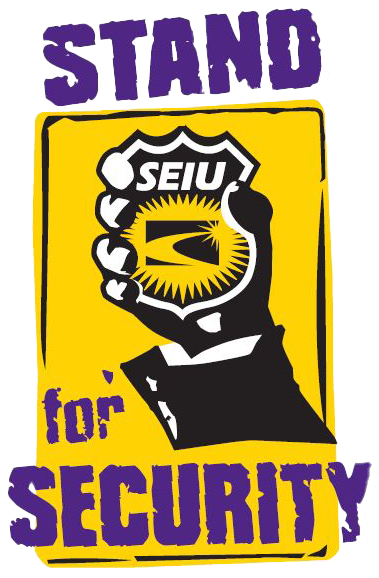 Tonie Wilson became a security officer more than 15 years ago—not long before the 9/11 terrorist attacks.
Tonie Wilson became a security officer more than 15 years ago—not long before the 9/11 terrorist attacks.
At that time, she protected a university on the west side of Los Angeles. “We went on high alert,” she says. “We scanned everyone who came to campus; checked trunks, underneath and inside all vehicles; and only allowed students and employees in.”
“We all worked 12-hour shifts, helped out on our off days, and secured the whole university for a week. People felt safer on campus because of our work.”
Tonie now has years of experience protecting people and property in educational settings, office buildings and healthcare facilities.
Yet she is paid $13.25 per hour, and barely manages to make ends meet, even with a second job caring for a person with a disability in her client’s home.
“I work more than 60 hours a week,” she says, “I’m just scraping by. My son and I put up money throughout the month, and I use my in-home care checks for rent.”
Even with careful budgeting and an apartment that’s subsidized by a non-profit organization that bases rent on income levels, Tonie says she still can’t save money for retirement.
“It doesn’t feel good at all,” she says. “I think about it all the time. I’m 51. I don’t want to work ‘til my last days. But what kind of income will I have?”
Tonie is working to build a brighter future for herself and her fellow security officers, by organizing her union with SEIU United Service Workers West. She sees possibilities for officers who can get their employers to negotiate with them.
“We need higher pay, of course,” she says. “The healthcare plan is too expensive for most of us to afford. We can create more stability, and get them to work with us a little more.”
“Everyone should be part of a union.”
